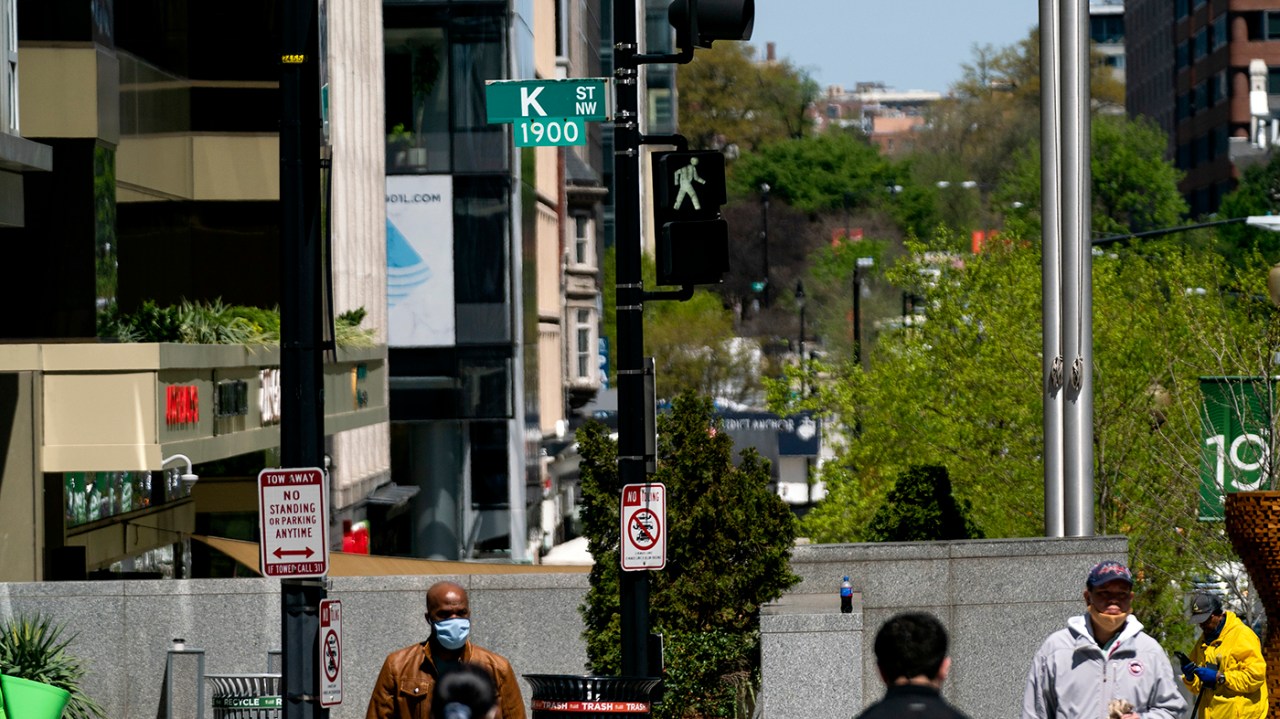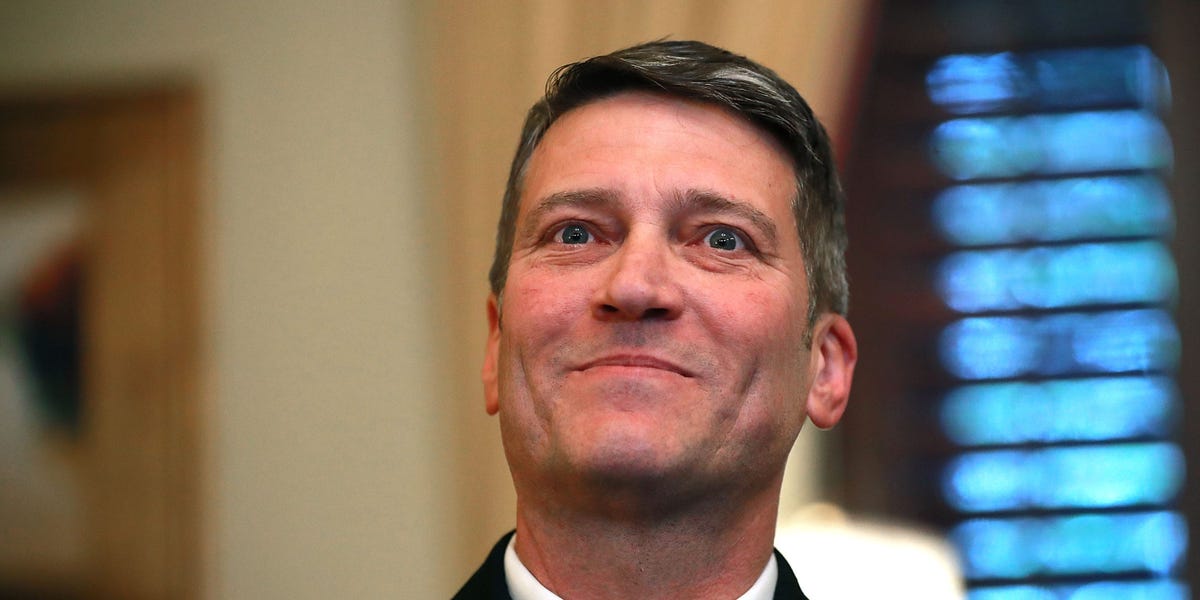You are using an out of date browser. It may not display this or other websites correctly.
You should upgrade or use an alternative browser.
You should upgrade or use an alternative browser.
Examples of Democratic Party leadership
- Thread starter Fogdog
- Start date
Roger A. Shrubber
Well-Known Member
that is what politicians should be doing, making life better for the people they represent...California will make its own insulin.
but republicans don't give fuck number one about the people they represent, they care about installing state level radicalized zealots to ensure they can steal power if...When, they lose.
DIY-HP-LED
Well-Known Member
Socialism!California will make its own insulin.
DIY-HP-LED
Well-Known Member
Have a contractor make it at scale and sell it to the rest of the country by mail for a small profit to cover expenses. It's can be produced dirt cheap these days and universities hold the biotechnology patents for cheap production, if those patents are still in effect. By selling it at a higher volume by internet and USPS, they can sell it cheap, if it's more or less nonprofit.California will make its own insulin.
cannabineer
Ursus marijanus
sweeetCalifornia will make its own insulin.
CunningCanuk
Well-Known Member
DIY-HP-LED
Well-Known Member
He is a constitutional expert, that was and still is his profession and he is good at it. There are civil warriors and terrorists in America, we see it in the news every week, the constitution has domestic enemies and the asshole he was roasting in congress, was one of the ones giving the terrorist wing of the party cover and a rational for political violence. If it was Chip Roy he was talking about, he was also involved in the insurrection and voting for treason in the immediate wake of the attack on the capitol.
printer
Well-Known Member
The most profitable large corporations pay little to no tax around the world. Without the US joining in the goal of having a minimum 15% tax, which the G20 agreed on would be dead in the water. There are 130 countries that have agreed to overhaul their tax systems so there is a minimum 15% tax.
Manchin-Schumer deal stuns business lobby
The climate and tax package unveiled by Senate Majority Leader Charles Schumer (D-N.Y.) and Sen. Joe Manchin (D-W.Va.) on Wednesday stunned K Street firms and big business groups that are now mounting a last-ditch effort to win concessions for their corporate clients.
The proposal to spur green energy investment, lower health insurance costs and reduce the deficit is funded by a host of provisions opposed by powerful industries. The bill would institute a 15 percent minimum tax on corporate profits, empower the government to negotiate the price of certain drugs, boost IRS enforcement and close a capital gains tax loophole.
Business lobbyists were confident that those tax proposals wouldn’t become law when Manchin said earlier this month that he would only support a slimmed-down reconciliation package that didn’t include climate spending or tax hikes.
Manchin’s reversal blindsided top Washington lobbyists, Senate Minority Leader Mitch McConnell (R-Ky.) and even members of the Democratic caucus.
“If McConnell didn’t see it coming, people in the business community didn’t see it coming. Because if anyone on K Street knew about this, it would have been leaked,” said Al Mottur, a former Democratic aide and lobbyist at Brownstein Hyatt Farber Schreck. “What’s amazing is that they did this and none of the staff told anybody.”
Dubbed the “Inflation Reduction Act,” the bill’s survival hinges on whether Democrats can unite their slim Senate and House majorities behind a deal that will draw scorn from a wide-ranging list of corporate giants.
Many of those corporations will key in on the minimum tax, which would bring in an estimated $313 billion in additional tax dollars over the next decade from companies that make at least $1 billion in annual profits.
“This legislation includes taxes that would discourage investment and undermine economic growth, and price controls that would limit American innovation. Both will make our economic problems worse,” U.S. Chamber of Commerce Chief Policy Officer Neil Bradley said in a statement.
At least 70 public companies hit the profit threshold in 2020 but paid less than 15 percent in federal taxes, according to a report from Sen. Elizabeth Warren (D-Mass.). The lengthy list includes Apple, General Motors, Bank of America, Intel, Verizon and FedEx.
Some manufacturers on the list paid little to no federal taxes.
National Association of Manufacturers CEO Jay Timmons said in a statement that the bill will “undermine manufacturers’ competitiveness at a time when the industry is reeling from supply chain disruptions and record inflation.”
Ever since the minimum tax was floated last year as part of a larger reconciliation bill, business groups inundated lawmakers with warnings that it would be too complex and would force companies to cut down on capital investments that spur growth.
On the other hand, the tax provisions represent a huge victory for retailers, which generally pay the full corporate tax rate, as they don’t benefit from as many incentives. The Manchin-Schumer bill keeps the 21 percent corporate tax rate from Republicans’ 2017 tax bill intact.
“The agreement struck accomplishes all the objectives retailers have set out to achieve throughout the debate on corporate taxes: permanent lower rates, fairness to ensure all are contributing, and better enforcement to collect what is legally owed,” said Michael Hanson, senior executive vice president for public affairs at the Retail Industry Leaders Association, which represents big box stores, such as Target, Home Depot and Best Buy.
Various small business advocacy groups have also been pushing for a corporate tax overhaul. Small Business for America’s Future found that 65 percent of small business owners support policies to ensure that large corporations “pay their fair share of taxes.”
In an interview with West Virginia-based radio station MetroNews on Thursday, Manchin said it is “ridiculous” that large corporations pay less than 15 percent in federal taxes and challenged companies to publicly oppose the minimum tax.
“We found out that there were some very, very large corporations that could basically take advantage of the tax code and pay nothing. I didn’t think that was fair, and I think most Americans don’t think that’s fair,” Manchin told radio host Hoppy Kercheval.
“They’re paying for the ability to be in this country with a defense that we have, protections we have, and opportunities, and they don’t want to participate?” he added. “I want them to come forward. Tell me who you are.”
Certain industries are lobbying against other key revenue raisers in the bill.
The proposal to boost IRS enforcement had previously drawn opposition from banking groups that argued it would spark privacy concerns and ultimately cause fewer Americans to put their money in banks.
The bill would attempt to close the so-called carried interest loophole, which allows wealthy fund managers to pay lower taxes on capital gains than most Americans pay on income taxes. That would hurt the bottom line of private equity giants.
“As small business owners face rising costs and our economy faces serious headwinds, Washington should not move forward with a new tax on the private capital that is helping local employers survive and grow,” Drew Maloney, president of the American Investment Council, which represents private equity firms, said in a statement.
Senate Democrats can pass the spending package with a simple majority using budget reconciliation rules that sidestep the 60-vote legislative filibuster.
Lobbyists see Sen. Kyrsten Sinema (D-Ariz.) — a reliable business community ally who did not attend Senate Democrats’ caucus meeting on Thursday — as likely the only lawmaker who could upend the bill.
Sinema previously backed the minimum tax but has expressed opposition to the carried interest measure. That could be a problem, given that on Thursday, Manchin insisted that the provision make it into the final bill.
A spokesperson for Sinema told reporters that she is still reviewing the text and will need to review the Senate parliamentarian’s ruling on whether the bill’s various provisions can be passed through budget reconciliation.
While around a half-dozen Senate Democrats have privately shared concerns about the minimum tax with industry lobbyists, none have publicly come out against the proposal.
Federal lobbying spending surpassed $2 billion through June, the largest first-half total on record, according to research group OpenSecrets. Business interests account for roughly 87 percent of the spending.

 thehill.com
thehill.com
Manchin-Schumer deal stuns business lobby
The climate and tax package unveiled by Senate Majority Leader Charles Schumer (D-N.Y.) and Sen. Joe Manchin (D-W.Va.) on Wednesday stunned K Street firms and big business groups that are now mounting a last-ditch effort to win concessions for their corporate clients.
The proposal to spur green energy investment, lower health insurance costs and reduce the deficit is funded by a host of provisions opposed by powerful industries. The bill would institute a 15 percent minimum tax on corporate profits, empower the government to negotiate the price of certain drugs, boost IRS enforcement and close a capital gains tax loophole.
Business lobbyists were confident that those tax proposals wouldn’t become law when Manchin said earlier this month that he would only support a slimmed-down reconciliation package that didn’t include climate spending or tax hikes.
Manchin’s reversal blindsided top Washington lobbyists, Senate Minority Leader Mitch McConnell (R-Ky.) and even members of the Democratic caucus.
“If McConnell didn’t see it coming, people in the business community didn’t see it coming. Because if anyone on K Street knew about this, it would have been leaked,” said Al Mottur, a former Democratic aide and lobbyist at Brownstein Hyatt Farber Schreck. “What’s amazing is that they did this and none of the staff told anybody.”
Dubbed the “Inflation Reduction Act,” the bill’s survival hinges on whether Democrats can unite their slim Senate and House majorities behind a deal that will draw scorn from a wide-ranging list of corporate giants.
Many of those corporations will key in on the minimum tax, which would bring in an estimated $313 billion in additional tax dollars over the next decade from companies that make at least $1 billion in annual profits.
“This legislation includes taxes that would discourage investment and undermine economic growth, and price controls that would limit American innovation. Both will make our economic problems worse,” U.S. Chamber of Commerce Chief Policy Officer Neil Bradley said in a statement.
At least 70 public companies hit the profit threshold in 2020 but paid less than 15 percent in federal taxes, according to a report from Sen. Elizabeth Warren (D-Mass.). The lengthy list includes Apple, General Motors, Bank of America, Intel, Verizon and FedEx.
Some manufacturers on the list paid little to no federal taxes.
National Association of Manufacturers CEO Jay Timmons said in a statement that the bill will “undermine manufacturers’ competitiveness at a time when the industry is reeling from supply chain disruptions and record inflation.”
Ever since the minimum tax was floated last year as part of a larger reconciliation bill, business groups inundated lawmakers with warnings that it would be too complex and would force companies to cut down on capital investments that spur growth.
On the other hand, the tax provisions represent a huge victory for retailers, which generally pay the full corporate tax rate, as they don’t benefit from as many incentives. The Manchin-Schumer bill keeps the 21 percent corporate tax rate from Republicans’ 2017 tax bill intact.
“The agreement struck accomplishes all the objectives retailers have set out to achieve throughout the debate on corporate taxes: permanent lower rates, fairness to ensure all are contributing, and better enforcement to collect what is legally owed,” said Michael Hanson, senior executive vice president for public affairs at the Retail Industry Leaders Association, which represents big box stores, such as Target, Home Depot and Best Buy.
Various small business advocacy groups have also been pushing for a corporate tax overhaul. Small Business for America’s Future found that 65 percent of small business owners support policies to ensure that large corporations “pay their fair share of taxes.”
In an interview with West Virginia-based radio station MetroNews on Thursday, Manchin said it is “ridiculous” that large corporations pay less than 15 percent in federal taxes and challenged companies to publicly oppose the minimum tax.
“We found out that there were some very, very large corporations that could basically take advantage of the tax code and pay nothing. I didn’t think that was fair, and I think most Americans don’t think that’s fair,” Manchin told radio host Hoppy Kercheval.
“They’re paying for the ability to be in this country with a defense that we have, protections we have, and opportunities, and they don’t want to participate?” he added. “I want them to come forward. Tell me who you are.”
Certain industries are lobbying against other key revenue raisers in the bill.
The proposal to boost IRS enforcement had previously drawn opposition from banking groups that argued it would spark privacy concerns and ultimately cause fewer Americans to put their money in banks.
The bill would attempt to close the so-called carried interest loophole, which allows wealthy fund managers to pay lower taxes on capital gains than most Americans pay on income taxes. That would hurt the bottom line of private equity giants.
“As small business owners face rising costs and our economy faces serious headwinds, Washington should not move forward with a new tax on the private capital that is helping local employers survive and grow,” Drew Maloney, president of the American Investment Council, which represents private equity firms, said in a statement.
Senate Democrats can pass the spending package with a simple majority using budget reconciliation rules that sidestep the 60-vote legislative filibuster.
Lobbyists see Sen. Kyrsten Sinema (D-Ariz.) — a reliable business community ally who did not attend Senate Democrats’ caucus meeting on Thursday — as likely the only lawmaker who could upend the bill.
Sinema previously backed the minimum tax but has expressed opposition to the carried interest measure. That could be a problem, given that on Thursday, Manchin insisted that the provision make it into the final bill.
A spokesperson for Sinema told reporters that she is still reviewing the text and will need to review the Senate parliamentarian’s ruling on whether the bill’s various provisions can be passed through budget reconciliation.
While around a half-dozen Senate Democrats have privately shared concerns about the minimum tax with industry lobbyists, none have publicly come out against the proposal.
Federal lobbying spending surpassed $2 billion through June, the largest first-half total on record, according to research group OpenSecrets. Business interests account for roughly 87 percent of the spending.

Manchin-Schumer deal stuns business lobby
The climate and tax package unveiled by Senate Majority Leader Charles Schumer (D-N.Y.) and Sen. Joe Manchin (D-W.Va.) on Wednesday stunned K Street firms and big business groups that are now mount…
doublejj
Well-Known Member
California to become 1st state to offer free school lunches for all students

 abc7.com
abc7.com

California to become 1st state to offer free school lunches for all students
Starting this school year, instead of worrying about packing a lunch, students across California can get yummy options at no cost.
cannabineer
Ursus marijanus
Republican homophobia: a new datum.

 www.businessinsider.com
www.businessinsider.com
Former White House physician Rep. Ronny Jackson pledges to never eat 'a whole plate of dog penis' again
Trump and Obama's former White House doctor said on the podcast "Ruthless" he knows what his last meal on Earth, most definitely, will not be.
HGCC
Well-Known Member
California to become 1st state to offer free school lunches for all students

California to become 1st state to offer free school lunches for all students
Starting this school year, instead of worrying about packing a lunch, students across California can get yummy options at no cost.abc7.com
Will see how it goes, it's on the ballot in November here in CO. It's something I very much support, pretty decent chance of passing I would think.

Free school lunches will be decided on November ballot
Federal funding helped pay for school meals for students throughout the pandemic but many of the federal funding programs are ending this year. Voters will decide in November whether to make free s…
DIY-HP-LED
Well-Known Member
Meanwhile the adults in DC are...
Herb & Suds
Well-Known Member
Keep going BrandonMeanwhile the adults in DC are...
cannabineer
Ursus marijanus
not helping. He is being a useful idiot.

 amp.theguardian.com
amp.theguardian.com

Bernie Sanders: ‘extremely modest’ spending bill fails to meet the moment
Leftwing senator says party squandered chance to be bold, and takes aim at ‘corporate Democrats’ Sinema and Manchin
Roger A. Shrubber
Well-Known Member
i hate to rag on Bernie, he has a good heart...but he's a fucking doofus. he can't seem to compromise...at allnot helping. He is being a useful idiot.

Bernie Sanders: ‘extremely modest’ spending bill fails to meet the moment
Leftwing senator says party squandered chance to be bold, and takes aim at ‘corporate Democrats’ Sinema and Manchinamp.theguardian.com
cannabineer
Ursus marijanus
This is an example where having a conscience is a good thing, but using it as a bludgeon is not.i hate to rag on Bernie, he has a good heart...but he's a fucking doofus. he can't seem to compromise...at all
Especially when his premise that “Democrats were not bold enough” is so far removed from political reality that he is carrying fascist water with such wishful statements.
Useful idiot.
cannabineer
Ursus marijanus
a bit more visible solidarity would be nice, perhaps under the principle that half a social democracy is better than none.I agree he is just being a bit of a douche, but at the end of the day he did vote for it, so I am not so worried that he wanted it to go further and is saying so.
More seriously, his suggestion that the problem with the Democrats is “not enough boldness” is at least reckless, and arguably party sabotage. We already got a coupla outright saboteurs harshing the legislative vibe.
Similar threads
- Replies
- 122
- Views
- 6K
- Replies
- 6
- Views
- 525
